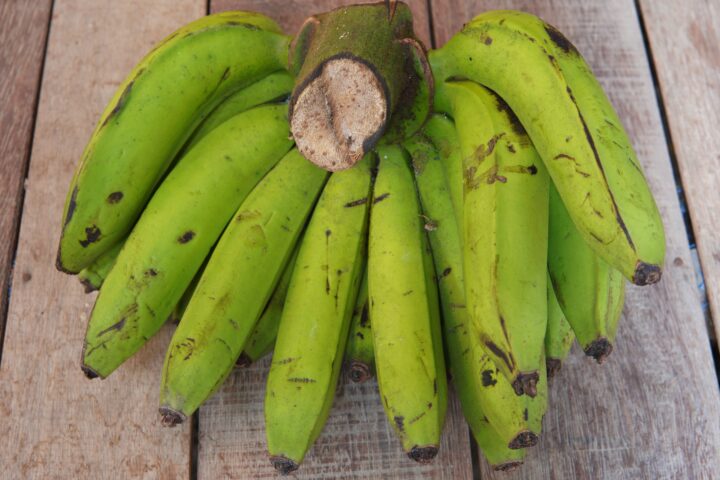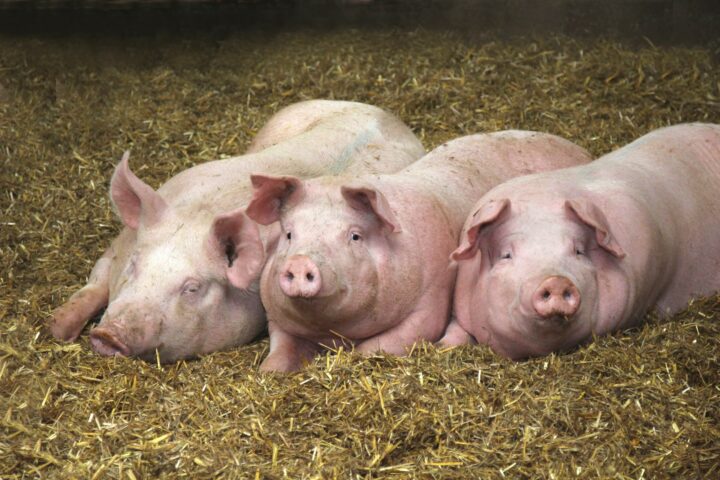
When the anti-genetic engineering lobby is in charge
A Tages-Anzeiger journalist gets caught in the threads of the anti-genetic engineering lobby and stumbles into unscientific territory. He writes about the fact that a politically controversial word is missing from a bill and embezzles a word himself when calling witnesses. A current example that shows how the choice of words can influence the perception of an issue.
Tuesday, March 11, 2025
The Swiss daily newspaper Tages-Anzeiger recently published an article about the alleged strong influence of the so-called ‘genetic engineering lobby’ in Bern. The article is titled: Regulation of new genetic engineering techniques: The genetic engineering lobby helped write the new law on rösti. It claims that the representatives of the genetic engineering industry have had a significant influence on the draft of the new law. The renaming of the law is particularly emphasised: originally referred to as the Federal Law on New Genetic Engineering Techniques in Plant Breeding, it is now called the Federal Law on Plants from New Breeding Technologies. The removal of the term ‘genetic engineering’ is not a coincidence, but a deliberate strategy to create public acceptance of new breeding technologies. According to the article, this is the work of the so-called genetic engineering lobby.
What is presented here as a political manoeuvre can, however, just as easily be understood as scientifically accurate naming: the new breeding technologies are a more precise form of mutagenesis, a genetic engineering method in which chemical or radioactive irradiation is used to cause random mutations. A large proportion of our current crops can be traced back to this type of breeding – hundreds of such plant varieties are also grown in organic farming. By comparison, the new breeding techniques are precision tools. If we were to be consistent, all plants bred using mutagenesis would have to be referred to as genetically modified. However, this is not the case. It is therefore only logical to categorise the new methods accordingly, even though they are now to be regulated in a separate law.
Unethical trade
The ‘Tages-Anzeiger’ obviously sees this differently. To support its own view, it cites an extra-parliamentary federal commission. What is particularly striking is an important omission: the paper refers to the ‘Swiss Federal Commission for Non-Human Biotechnology’, which classifies the new methods as genetic engineering methods that are ‘scientifically undisputed’. However, a crucial word is missing from the article: the commission is actually called the Federal EthicsCommission on Non-Human Biotechnology (EKAH). According to its website, the maximum of 12 members of the EKAH are ‘experts in ethics from various fields (philosophy, theology, biology, medicine and law) external to the administration’.
This omission is hardly an accident. It changes the perception of the source and gives the impression that a purely scientific body is classifying the new methods as genetic engineering. In fact, however, it is an ethics committee with an interdisciplinary background whose assessments are not based solely on natural science. If the journalist had wanted to present a competent scientific voice, he could simply have quoted the ECNH's ‘sister committee’, namely the Swiss Expert Committee for Biosafety, a committee made up exclusively of scientists which recently stated: ‘Furthermore, it is important to be aware that varieties created by conventional mutagenesis methods – i.e. by chemical or radioactivity-induced mutations – would never occur in nature in this way. In addition, mutations per se are a thoroughly natural process. It is estimated that around 40 billion natural mutations occur in a 1-hectare wheat field per generation. The widespread notion of a natural, stable and unchanging genetic structure, which has only been shaken by the advent of genetic engineering techniques, is scientifically untenable.’ The position adopted by the ECNH (Swiss Ethics Committee on Non-Human Genetics) and apparently also by the Tages-Anzeiger journalist is therefore scientifically untenable. The new breeding method CRISPR/Cas – the ‘gene scissors’ – is a much smaller intervention in the genome than mutation breeding. The plants that result from it cannot be distinguished from conventionally bred varieties. And if there is no difference, the declaration requirement demanded by the same journalist in an earlier comment makes no sense.
New breeding technologies (NBT) will play a central role. In future they can make an important contribution to sustainable and productive agriculture. However, any further development – even without genetic material from other species (transgenic DNA) – is currently blocked by the moratorium on genetic engineering. You can find more information on the differences between the various breeding methods and their regulation in this knowledge article.
Sources
Kindly note:
We, a non-native editorial team value clear and faultless communication. At times we have to prioritize speed over perfection, utilizing tools, that are still learning.
We are deepL sorry for any observed stylistic or spelling errors.
Related articles

Genetic engineering? Yes, of course.
As a consumer, you often don't know: products advertised as GMO-free have long contained genetic engineering. This is a thorn in the side of opponents of genetic engineering. But it is easier to keep quiet about the ‘scandal’ – because something we have been eating for a long time no longer scares us.

“Genetic engineering endangers health”
It is often said that genetically modified foods are not safe and could have a negative impact on human and animal health. However, these claims cannot be substantiated by facts.

How genetic engineering is saving the Cavendish banana
The most popular banana variety - the so-called Cavendish banana - could soon disappear due to a persistent fungus. Australian researchers have developed a solution based on genetic engineering.

What’s Really in Your Shopping Basket
Genetic engineering in our shopping basket? Yes – and much more often than we think. Whether it’s pasta, bread or vegetables: many of the everyday products we consume come from mutation breeding, which involves altering the genome and is considered safe. It’s high time to debunk the common myths.

Genomic breeding methods are not given a chance to prove themselves
Modern genomic breeding methods are legally classified as genetic engineering – and are therefore still effectively blocked. Yet we have been eating genetically modified plants for decades, just under the label of “classical mutagenesis.” The new, more precise techniques are regulated more strictly than the old ones, even though they are considered safer from a scientific perspective. A contradiction that urgently needs to be corrected. The EU is setting a good example.

No Pig Business: Why Testicle-Free Boars Are a Clear Win for Animal Welfare
New breeding methods are opening up new possibilities in both plant and animal breeding. They allow targeted genetic changes that can make animals more resilient, adaptable, and healthier.

Stagnation instead of progress: Switzerland risks falling behind in new breeding techniques
An overview article in Schweizer Bauer shows how much the new breeding methods are preoccupying farming circles. Once the consultation process on the federal law has been completed, a bill is expected – then it will become clear whether there is actually the political will to approve it.

